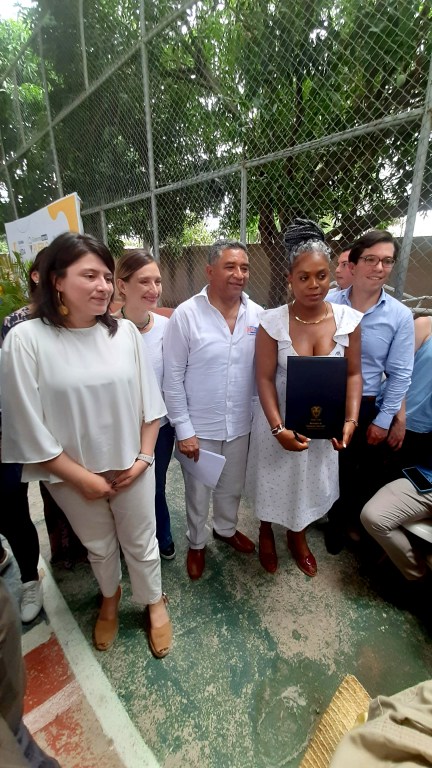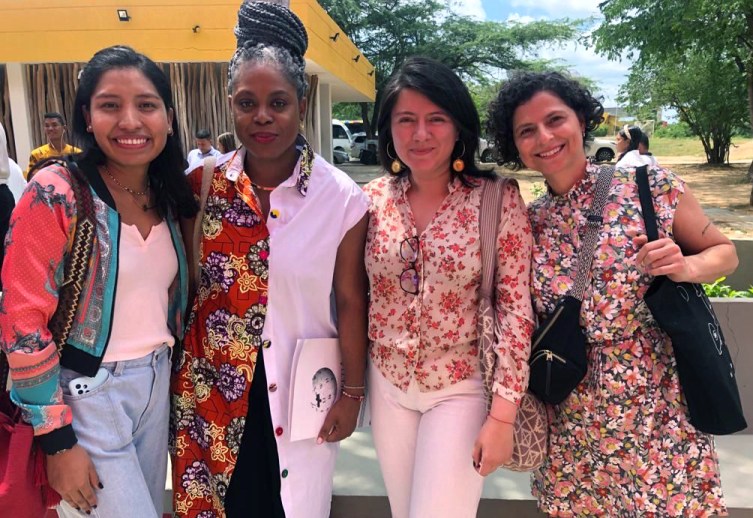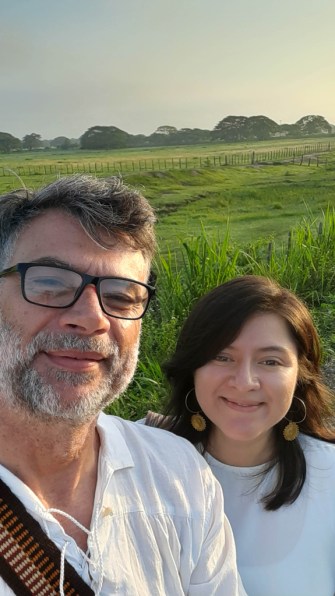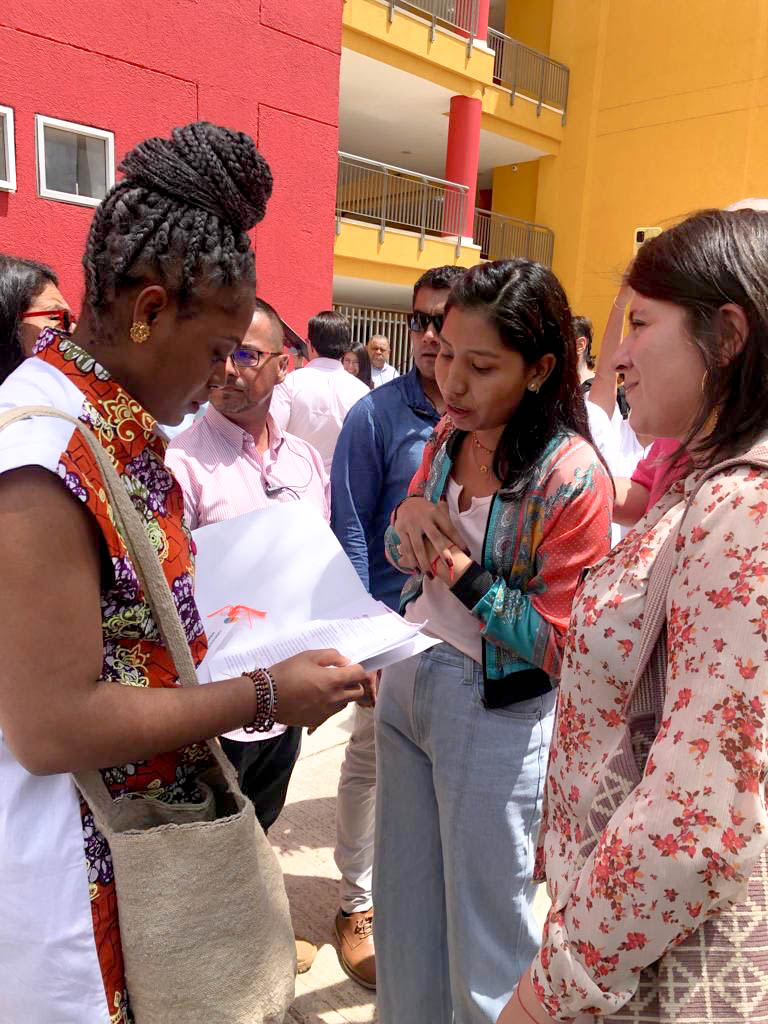
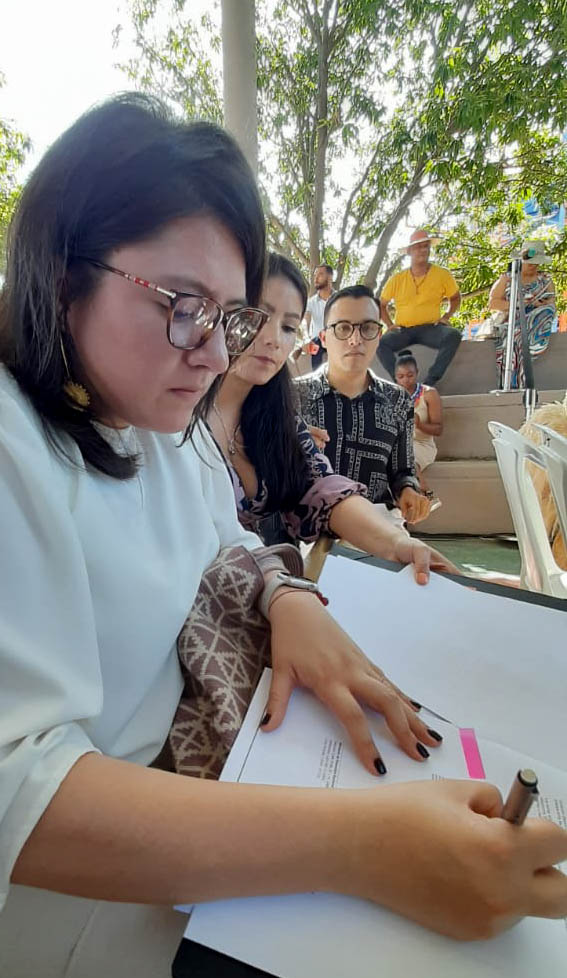
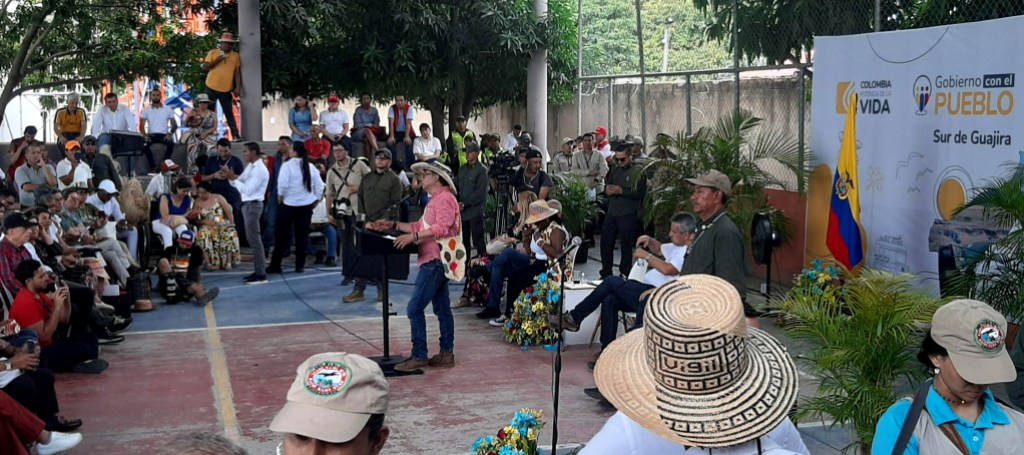
Suddenly, and without any other explanation, I found myself face to face with President Gustavo Petro – “Good day, Mister President, a pleasure to meet you” – “The pleasure is all mine; I want to congratulate you, you’re doing great”, my eyes teared up immediately. In the blink of an eye, the scene faded out, it was all a dream, a very vivid one. I woke up in a sweat, at over 100-degree heat and 90% humidity at Riohacha, La Guajira.
Wikimedia Colombia was only starting that week’s work at La Guajira Department. In alliance with the National University of Rosario and Tactical Tech, we had designed a workshop for Wayuu ethno-educators on the basic principles to combat misinformation. Weeks before we had settled on the logistics and dates, but we couldn’t imagine what was to come that week at the Guajira.
A few days before the trip, we held an important meeting led by the Wikimedia Foundation (WMF) Partnerships team, Brisa Ceccon (Senior Regional Partnerships Manager for LATAM), Jorge Vargas (Director of Regional Partnerships), along with the Pedagogical Innovation Officers from the Colombian Education Ministry. This was an important meeting for WMF-WMCO, as only a few months prior, our previous efforts and designs for joint activities were filed to oblivion. The political comings and goings at a volatile landscape brought by Gustavo Petro—first progresist President in Colombia’s history—ended up in a shakeup of several Ministries. One of such changes was the Education Ministry, with whom we had our initial meetings. A few months later, with Aurora Vergara as newly appointed Minister, we managed to rekindle the discussion.
Some history
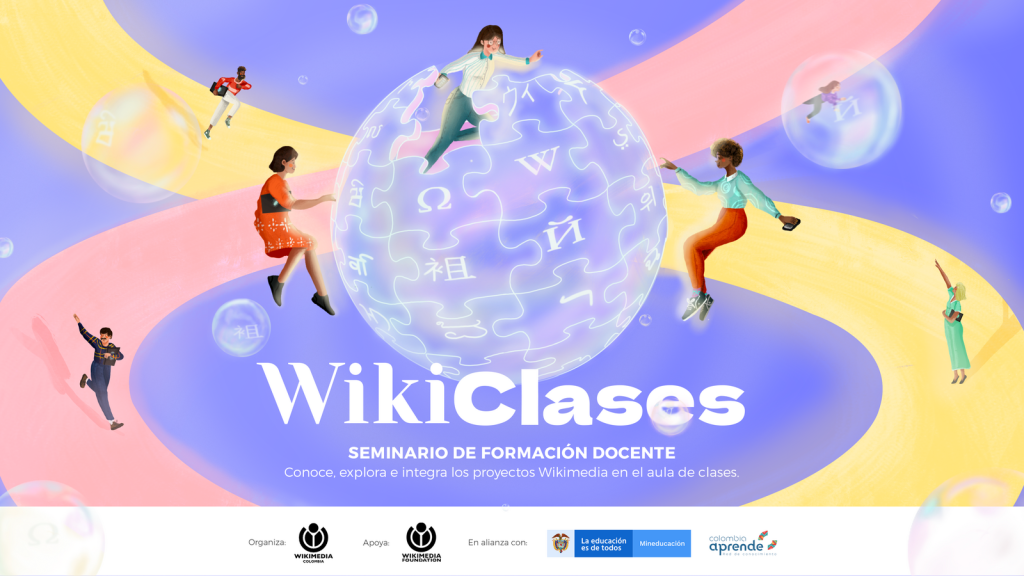
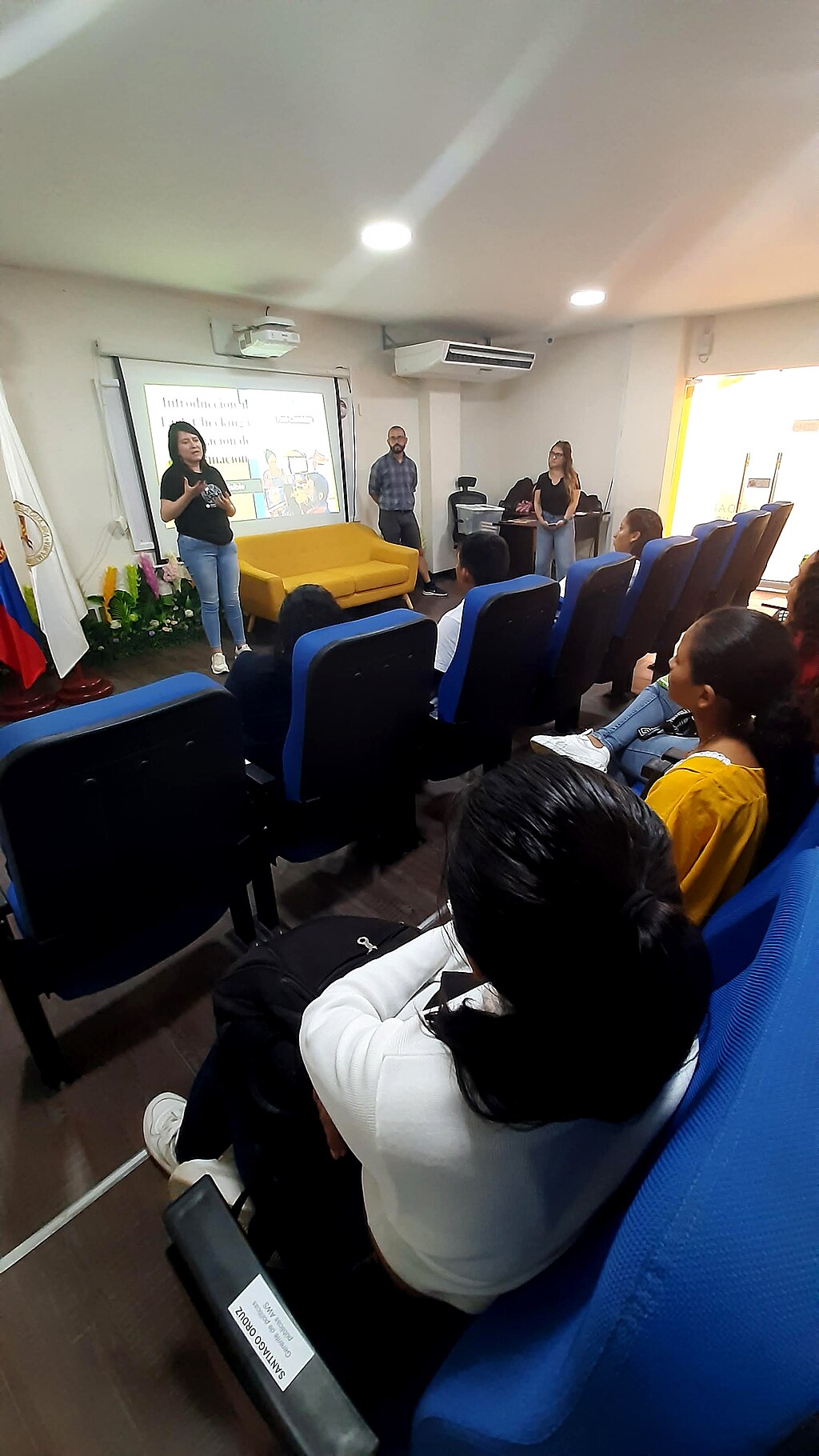
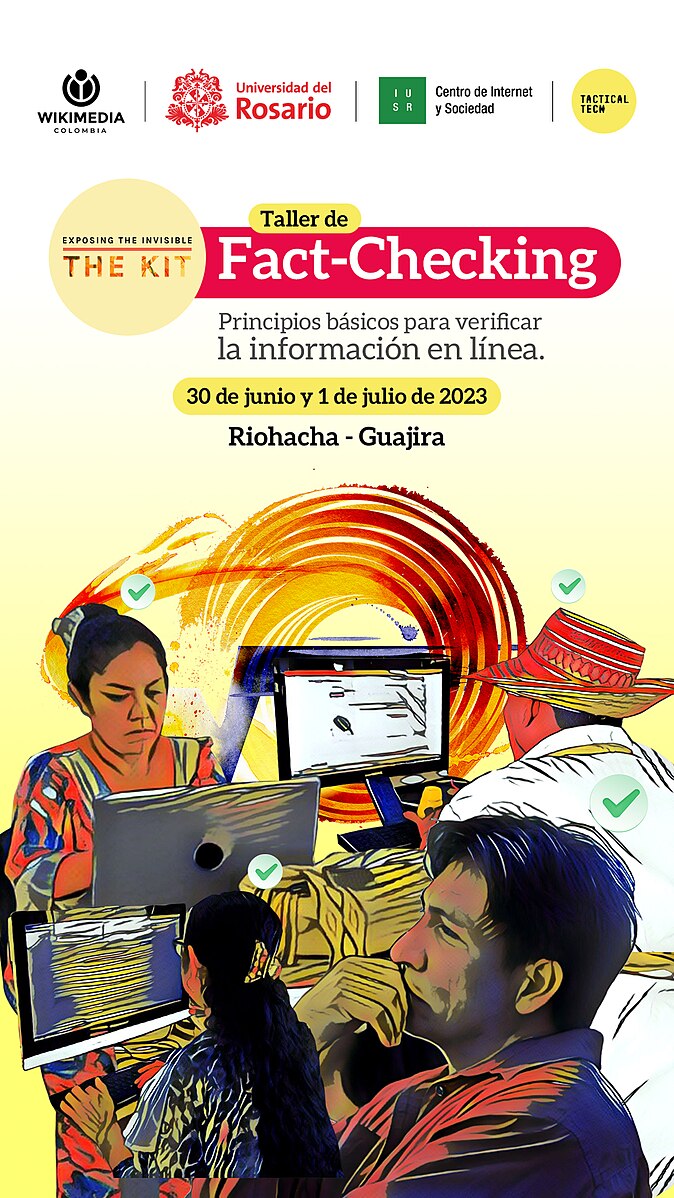
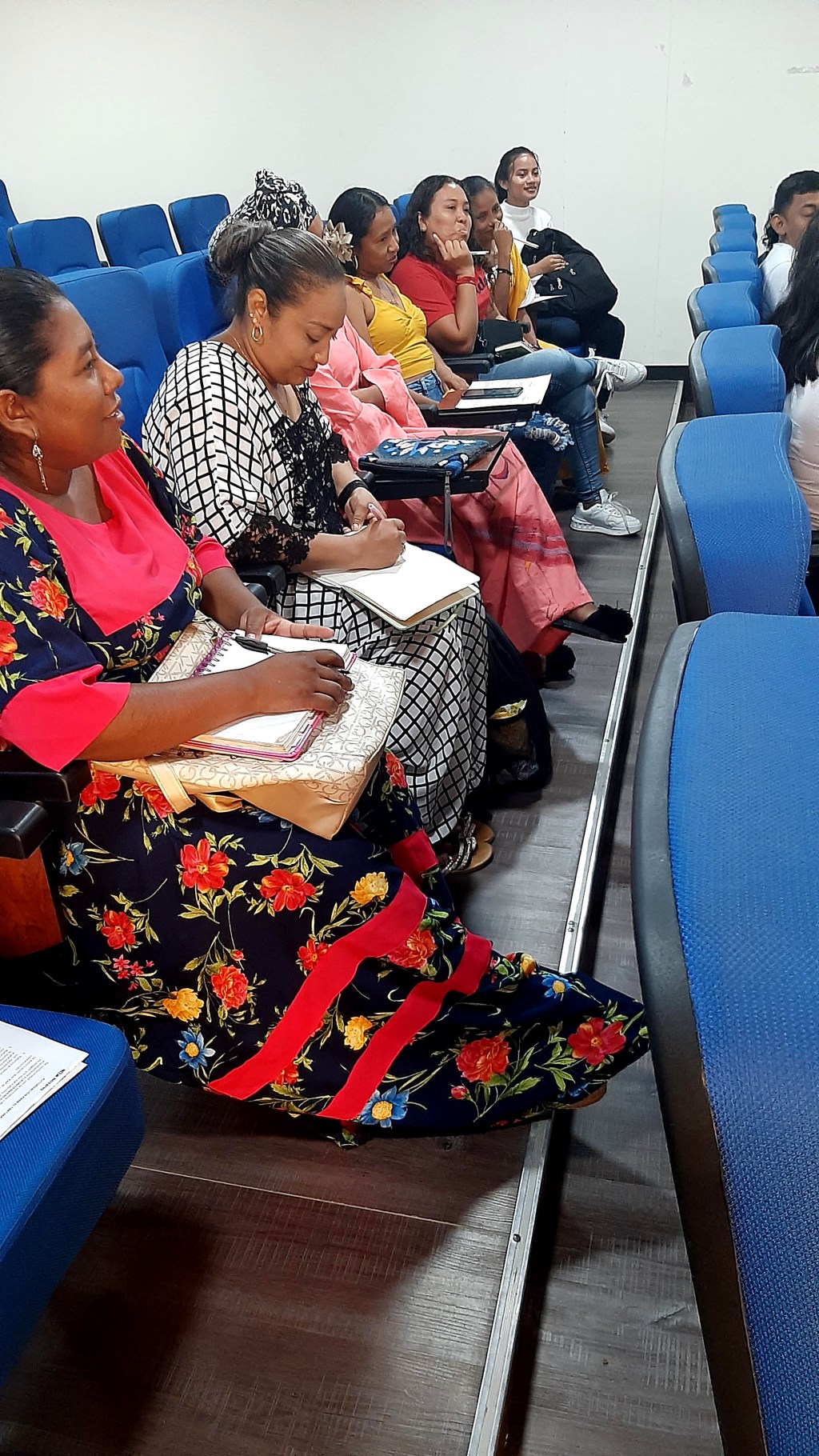
Ever since 2021, Wikimedia Colombia (WMCO), Wikimedia Foundation (WMF) and the National Education Ministry (MEN) began a partnership that has only grown more mature with time. Back then, still in the context of a global pandemic, a first Memorandum of [Mutual] Understanding (MdE) was jointly signed, leading to several training and sensibilization activities targeted to classroom teachers. One of such activities was WikiClases (WikiLessons), an online course for 250 teachers, including edit-a-thons and webinars with experts across the Wikimedia Movement.
In 2022 we paused during election times and the following government transition. We then resumed our meetings with the Ministry, looking forward to further developing the partnership, it’s reach and impact. We wanted to explore the implementation of our own version of “Reading Wikipedia in the Classroom”—properly adapted to the Colombian context—along with the Ministry, in order to preach and incentivize the use of open educational resources, both online and offline.
Leamos Wikipedia en el Aula (Reading Wikipedia in the Classroom) is a Training of Trainers program, developed by the WMF’s Education team, which aims to train educational leaders to contextualize and implement the program in their schools and territories.
This program aligns with UNESCO’s framework for AMI and has been further enriched with the expertise of local educational leaders.
The meeting was held at Liliana Guaca’s office. She—Head of Pedagogical Innovation—and her advisers met with us to reestablish the agreements set in our first round of negotiations, as well as to adapt the partnership to the newly appointed Minister’s vision and her intention to pursue “Education for Peace” as a guiding principle. We defined a few changes in the territorial implementation of “Reading Wikipedia in the Classroom”, and we mentioned our interest in involving higher education in the program.
At the end of the meeting, we mentioned that we were about to hold a workshop with the indigenous Wayuu community at the Guajira the following week, and we would meet the government there. President Petro ordered his Cabinet to move to the Guajira and work from there the whole week, as a means of facing several emergencies, such as child malnutrition, the fragile health system, and droughts, among others. He declared a State of Emergency, which allows the Government to quickly mobilize resources in response to calamities. Liliana saw an opportunity for us to interact with Minister Vergara there, so she suggested us to prepare an “elevator pitch” of sorts to introduce her, in broad strokes, to the Wikimedia-MEN partnership and its goals. We left the building smiling, optimistic and holding great expectations of our coming week at the Guajira. None of us had any idea of what was in store for us.
Our trip to the Guajira
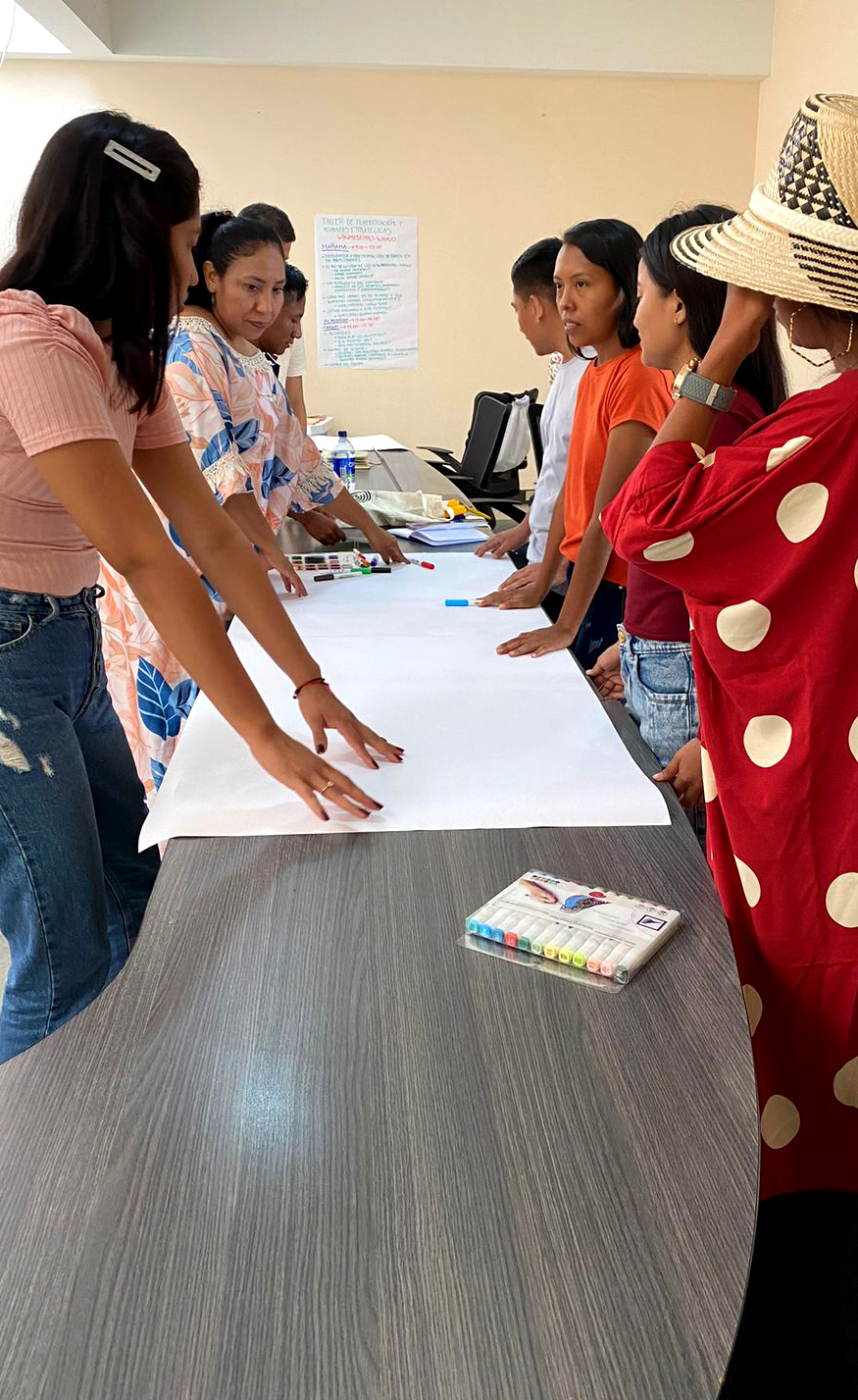
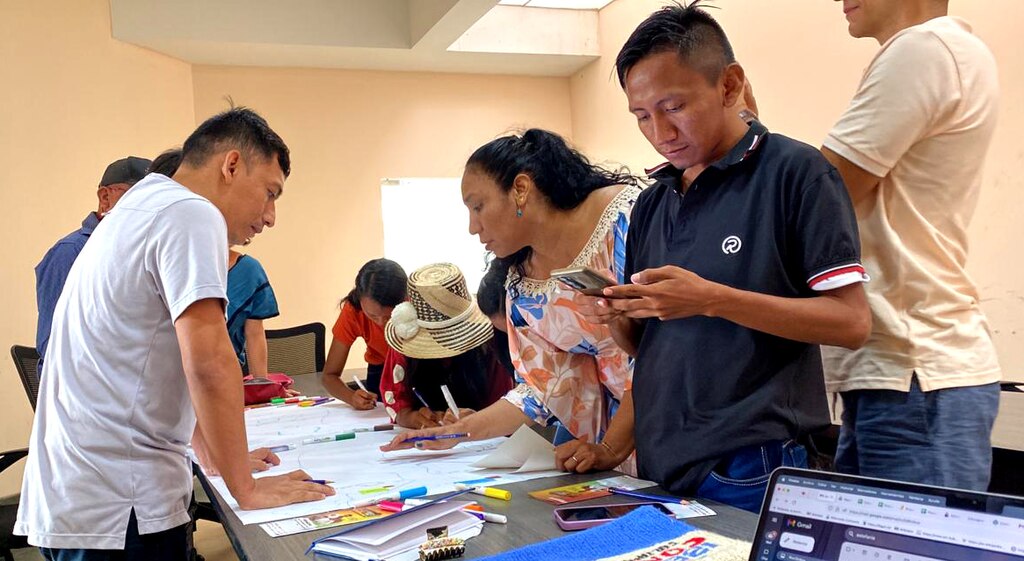
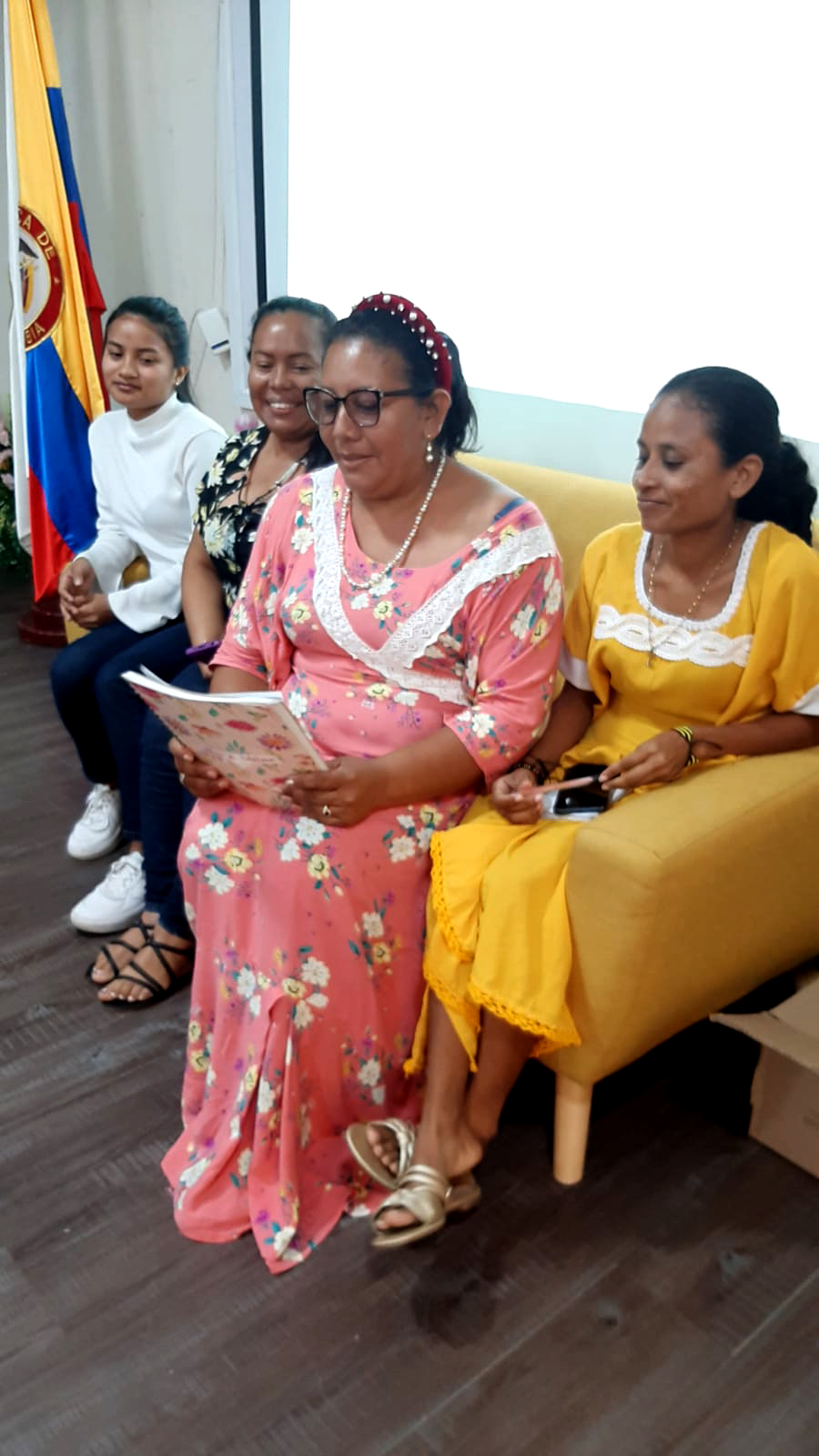
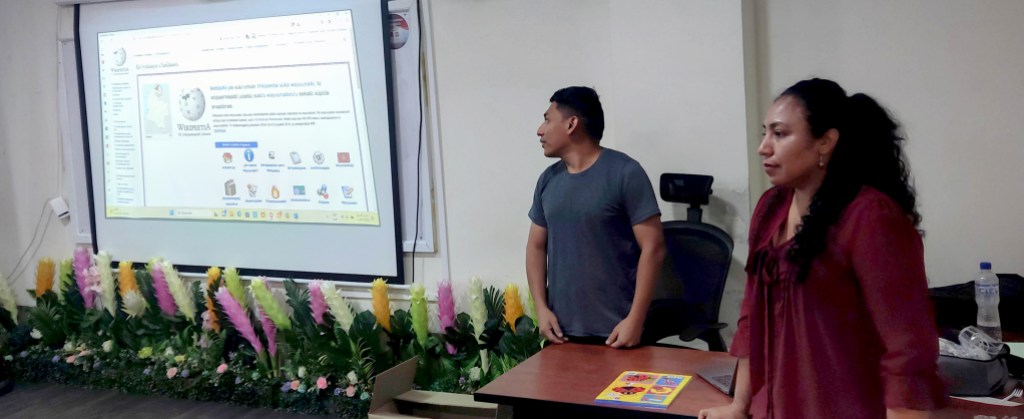
As the week began, we were present in strategic partnership meetings, looking forward to further build capacities within the Wayuu Wikimedians group, who have been promoting the Wikipeetia süka wayuunaiki (Wikipedia in Wayuunaiki language) since February 2023. We felt in the indigenous educators and knowledge workers a palpable desire to use their native language as an educational resource. Neima, Jaineris and Leonardi have been working hard to promote the blooming opportunities that the Wikipeetia brings to the Wayuu community, but still needed help in the field of strategic relationships; this is where the WMF stepped in to help.
By Thursday, Ricardo Correal—cameraman and social media coordinator for WMCO—and Hernan arrived in Riohacha ready to face a few challenging workshop days. They arrived to find an unforgiving, tiring heat, but their determination to work alongside the Wayuu women educators helped them to keep their spirits up. At the same time, Jaineris, Brisa and myself were invited by the Ministry to a roundtable discussion on “Challenges to integral education in the framework of the fourth industrial revolution”, we were given a privileged seat. Just as we were leaving the event, and just as Liliana had predicted, we had an opportunity to speak with the Minister. Janieris led the conversation, and presented Wikipeetia en Wayunaiki. The Minister was happy, and their team even asked to take some pictures of us together, this was a victory for our team. We had succeeded in our mission, to tell the Minister why we were there. And even then, this was only the beginning of our story.
On the first day of our workshop with wayuu women, we established their baseline abilities on information literacy and verification, and then co-built our mechanisms to adapt the Tactical Tech’s kit to this context. We used Wikipedia as a tool to verify sources and information, and then transferred this knowledge to prototyping Open Educational Resources to ultimately share these tools with students in a classroom. It was an intense, hot, and very gratifying day, but it wouldn’t end with the workshop’s end.
Late at night, the advisors at the Innovation office contacted us with a clear message: we had to finish up the agreement document, as WMCO would be part to a Presidential Assembly where Minster Aurora Vergara was to present to President Gustavo Petro and his cabinet the new partnerships—looking forward to strengthening integral education—and a strategy to reduce the breaches to accessing educational resources. This call felt like opening a door to a dejá-vu, we would really have the opportunity to interact with the President directly, only this time it wasn’t a dream.
We split up the tasks: Laura and Hernan would stay in Riohacha to complete the workshop and finish up the educational tools prototypes, while Ricardo and Myself would relocate to San Juan del Cesar to attend our date with the President. The emotion and anxiety didn’t let us sleep that night.
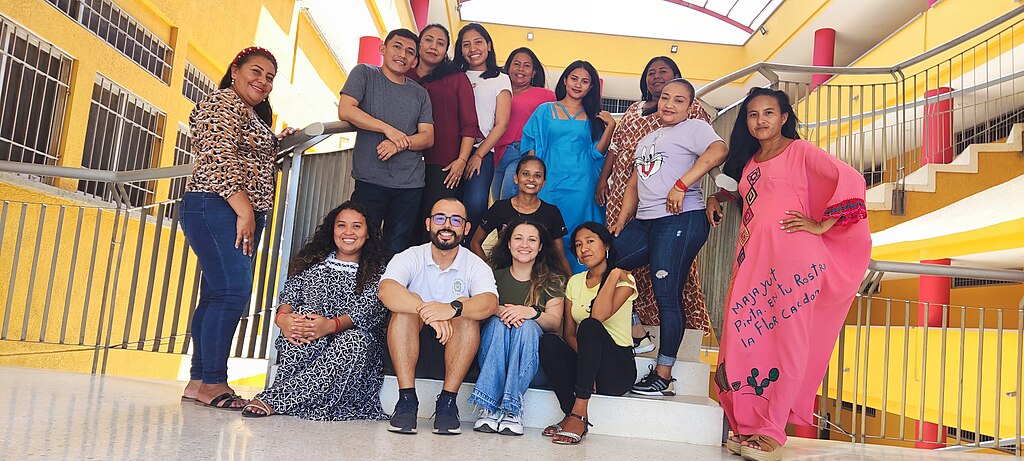
A date with Fate
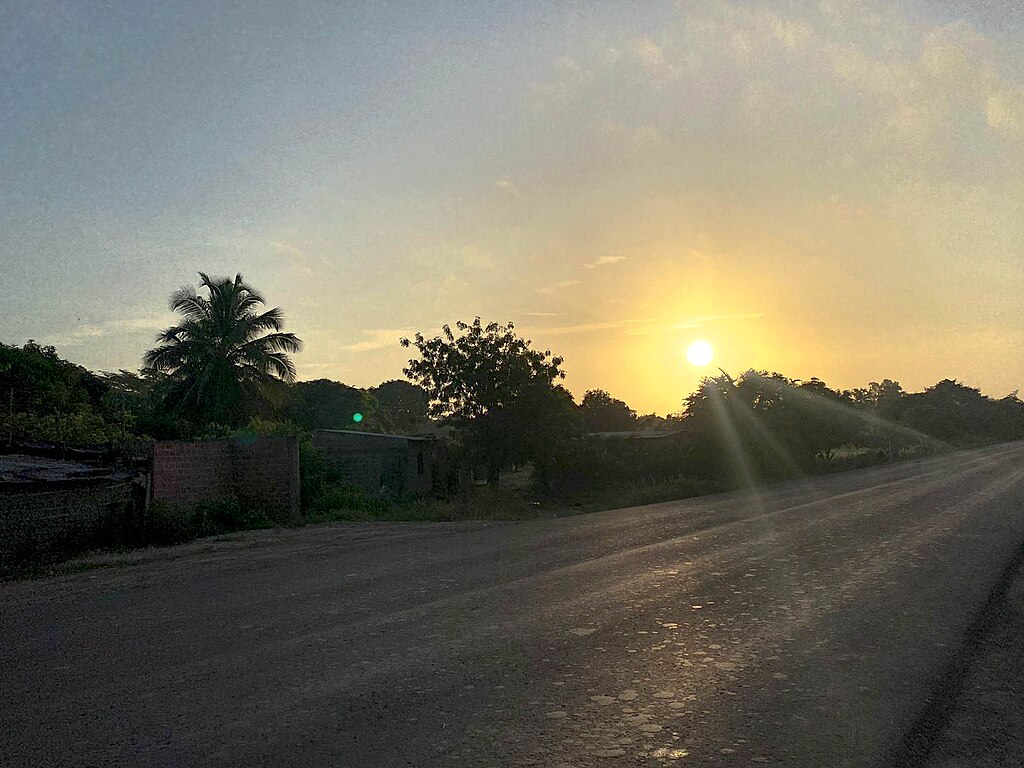
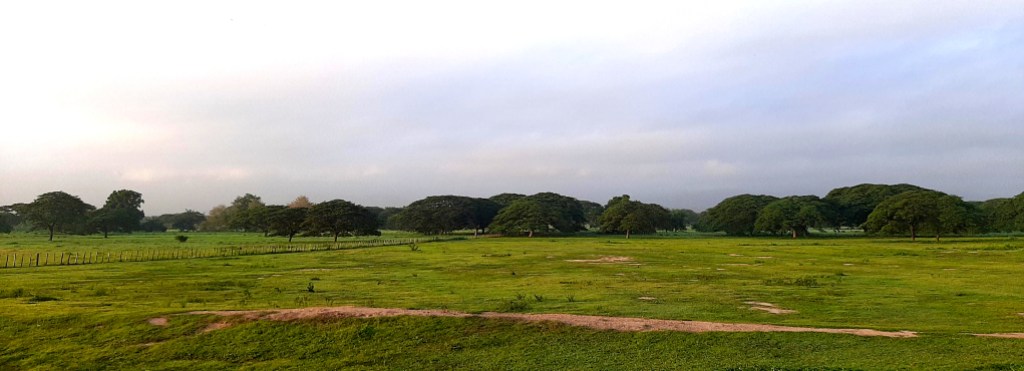
Our trip began at 5AM: Alex—driver of an express service within and outside the Guajira—picked us to take us to San Juan del Cesar, a municipality about 200 km (124 miles) from Riohacha. Alex was very colloquial, and started to refer to us as “Moni” and “Ol’ Richie” in just a matter of minutes.
It was a relaxing, beautiful trip, we caught an amazing sunrise and had a breakfast of soup, banana toast and eggs, just like the local workers do, and even took a few pictures with some gigantic carbon-extracting machines at “El Cerrejón”. El Cerrejón is the largest carbon extraction operation in the country, large enough to position Colombia as the 5th largest carbon exporter in history. The miners, however, are facing a new vision of energetic transition imposed by the progressivist government. The tension around here is palpable. Conflicts between native communities and the mining companies have been escalating for decades, and in this Department, the election of President Petro has acquired a significant symbolic relevance.
We finally arrived at San Juan del Cesar, and the sports center had been reorganized for the unprecedented event. During that week in the region, the President visited several zones that had never seen any visits from high political leaders. The seats had been arranged according to the Casa de Nariño protocol, so special guests were assigned to the first line, our seats were reserved there. The event was scheduled to start at 10 AM, but the gossip said that the President would arrive in 45 minutes. The temperature was rising slowly with every passing minute, and the shadow cast by the aluminum ceiling soon vanished. Ricardo, an experienced cameraman, was already succumbing to the heat, we were above 100 degrees and the sports center had literally become an oven. It was 2PM and looked like the President would soon actually arrive.
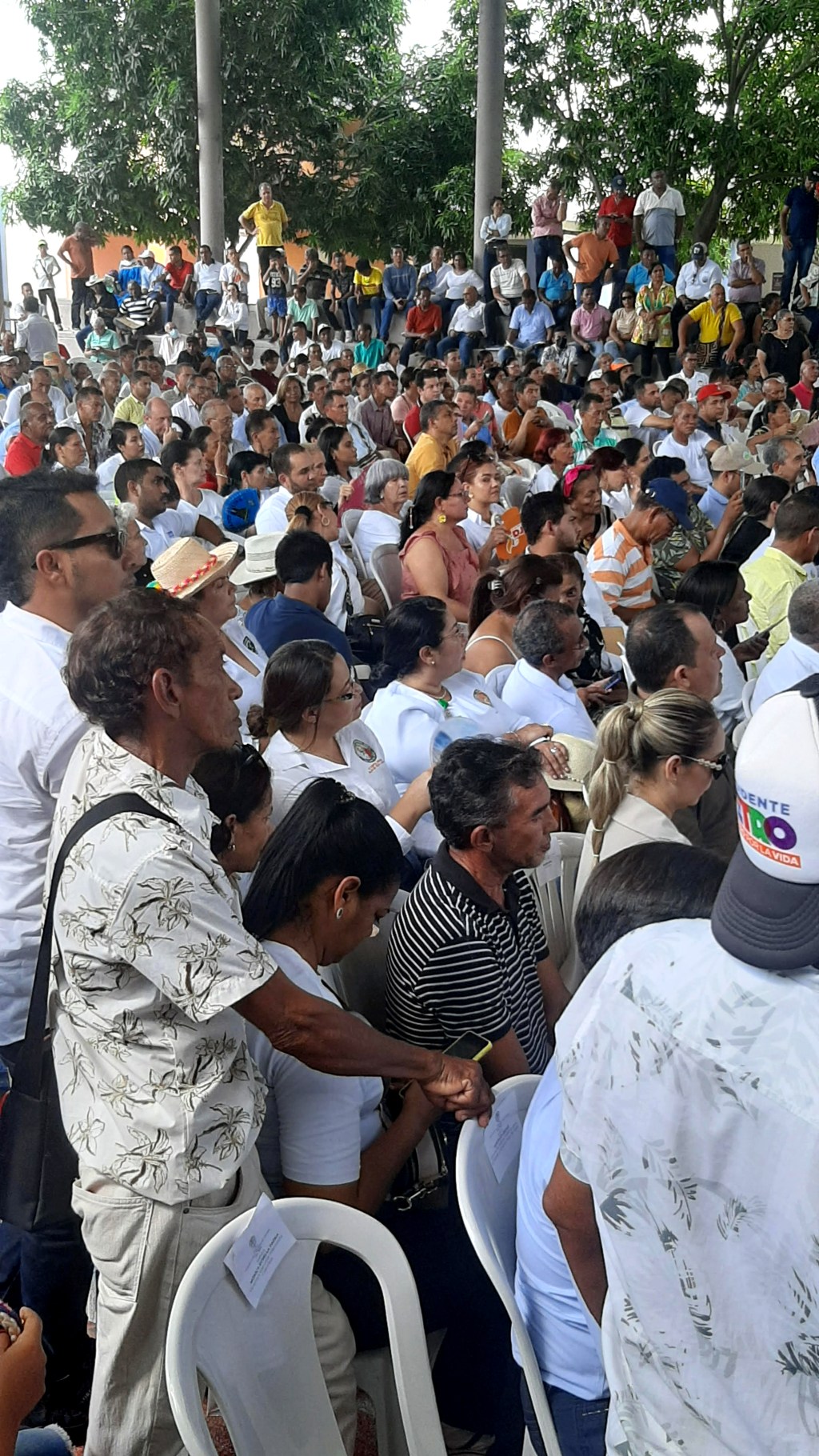
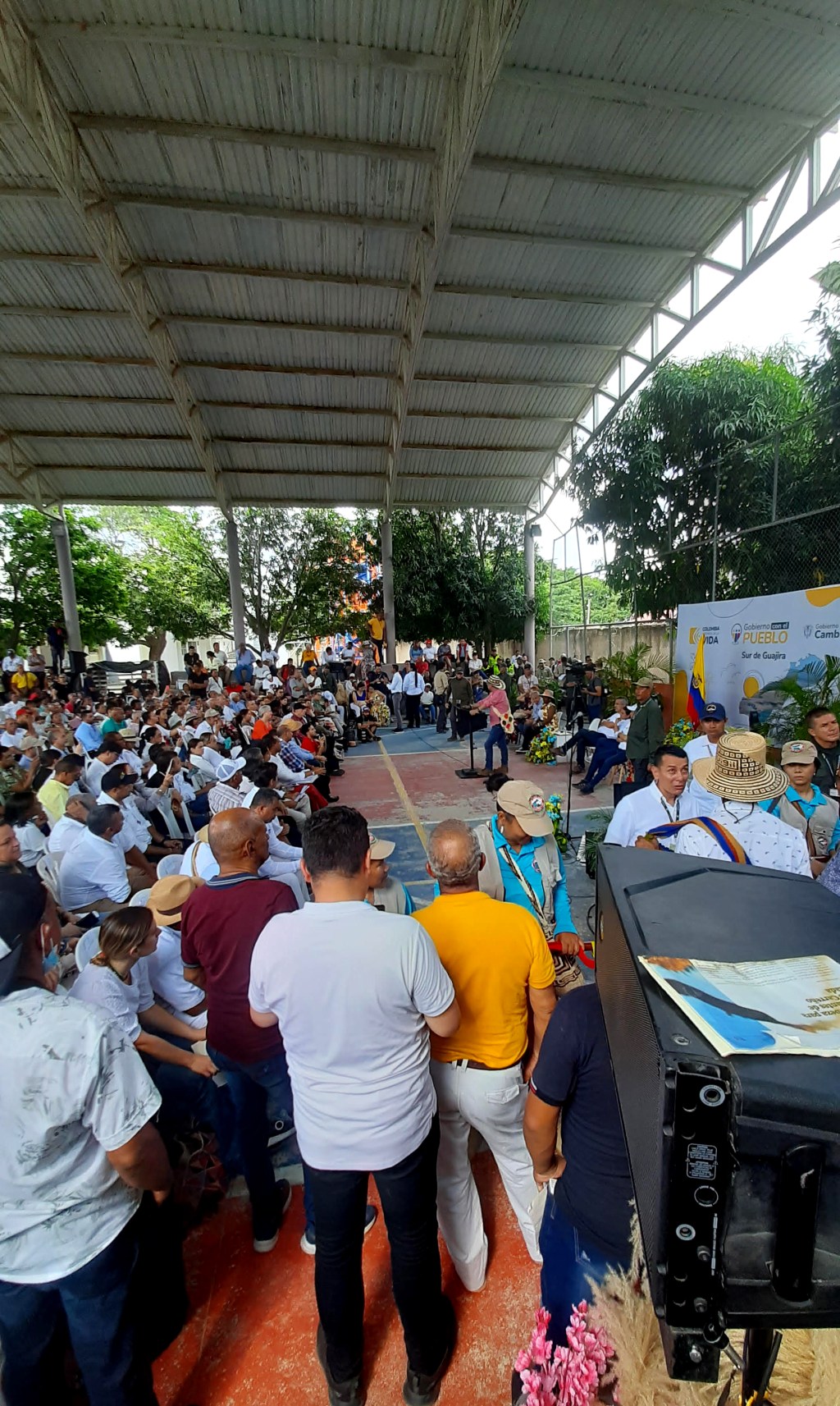
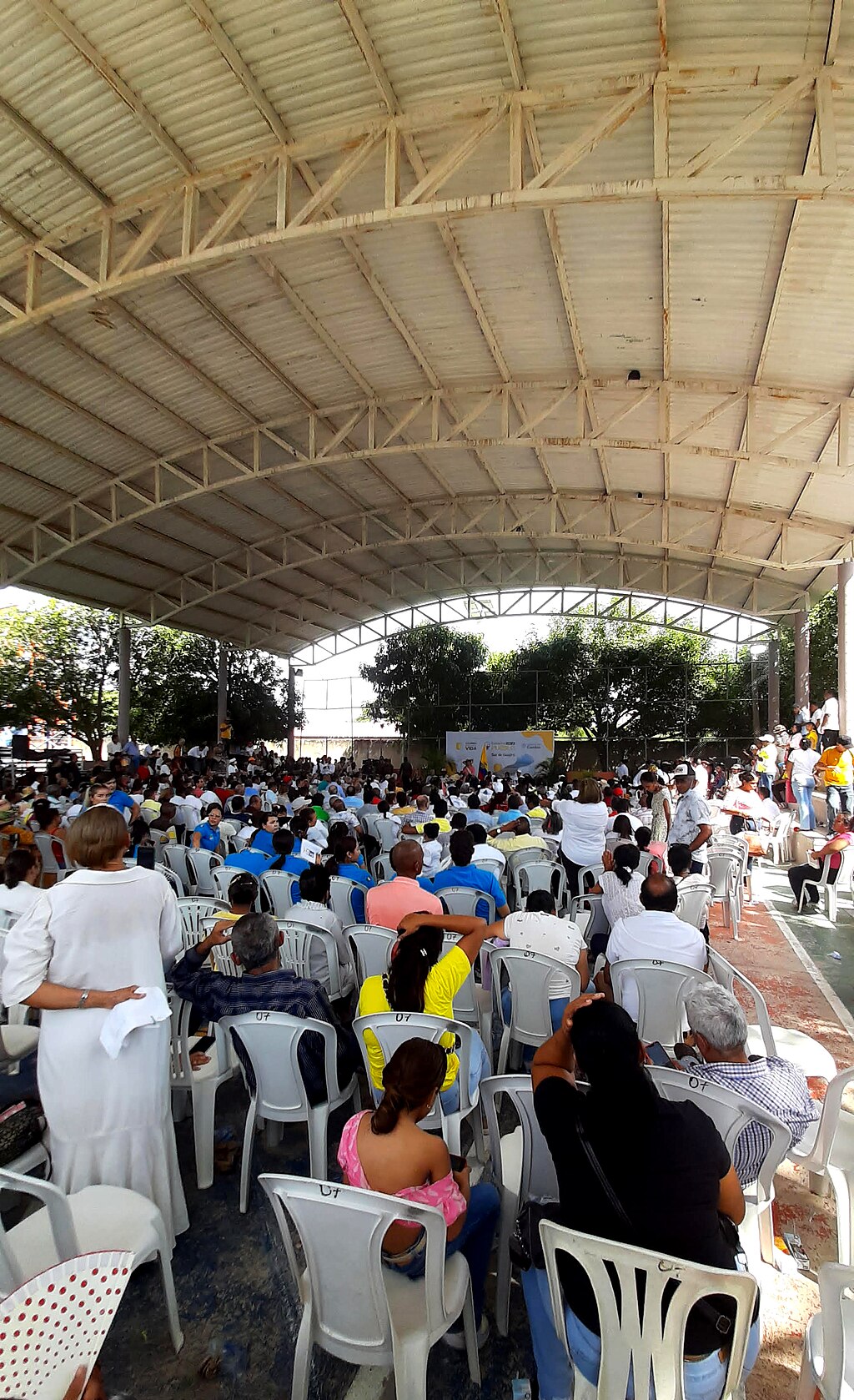
The mood went from expecting, to exciting, to extreme tiredness due to the weather. Conditions such as this are common for the wayuu communities, with little access to basic resources and because the carbon mining activities diverted, for their own benefit, the Ranchería River, leaving the communities without water, which itself has been the leading cause of infant mortality in the region.
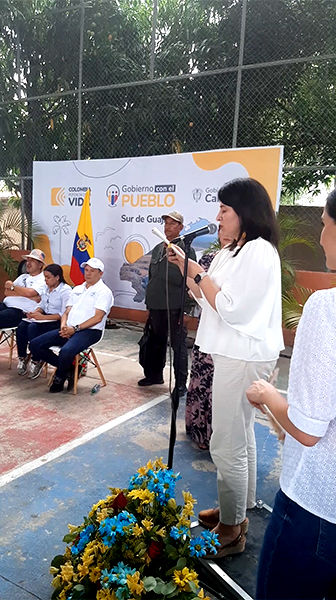
The Ministry team told us several times that we would be able to present the Agreement, but we would only have a few seconds given that we were behind schedule. We signed the Agreement mere minutes before the President arrived, so that we would be able to present it ready to go.
While the event was underway, Education Minister Aurora Vergara took the floor and presented before President Gustavo Petro a signed Agreement with Wikimedia Colombia. One of the advisors cued me, I walked to the microphone a few feet away from the President, I looked him in the eyes and addressed him: -”Mister President, Gustavo Petro Urrego: Wikimedia Colombia is committed with the Government for change…”. Ricardo was fighting to try and enter the reserved space to document an exceptional event: the defenders of free knowledge had managed to speak on a high relevance platform to promote the Wikimedia projects. Emotions were running high, I read my speech and the President nodded in agreement, demonstrating his empathy to our world vision.
From now and during the next 4 years, Wikimedia Colombia and the Wikimedia Foundation will play a decisive role in the Education Ministry’s project as part of the Government for Change.
Implementing the “Reading Wikipedia in the Classroom” will reach teachers and students in rural parts of Colombia, aided by the Wikimedia Foundation. This will also be done on-ground by the Wayúu Wikimedians group, who will help with implementing the program at the Colombian Guajira with educational Wayúu leaders.
We celebrate this partnership, most transcending for the Wikimedia movement in Colombia, and this giant step in promoting the use of Wikipedia in classrooms as an additional tool for media and information literacy.

Can you help us translate this article?
In order for this article to reach as many people as possible we would like your help. Can you translate this article to get the message out?
Start translation
